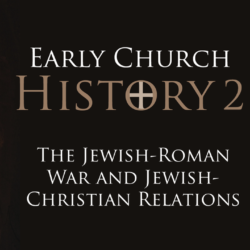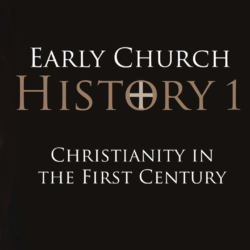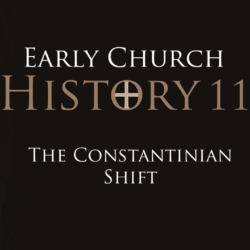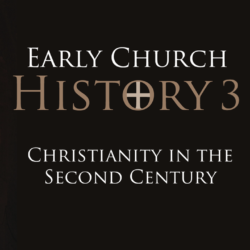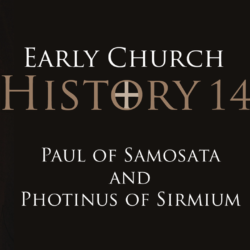Believing Jesus is Lord and Christ is both religious and political. Watch this to see how early Christians living in Philippi would have interpreted the gospel message as requiring a radical shift in allegiances from Caesar to Jesus.
Here are the slides from this sermon:
Here are my notes:
Battle of Actium (Sept 2, 31 bc)
- on the Ionian Sea at Actium, Greece
- Octavian vs. Mark Antony & Cleopatra
- both claimed to represent the Roman Republic’s interests
Octavian had
- 250 war ships called galleys, propelled by rowers
- 16,000 infantry
- 3,000 archers
Marc Antony had
- 290 war ships
- 20,000 infantry
- 2,000 archers
by the end of the day
- 7,500 killed in action
- 200 ships sunk or captured
Sextus Propertius composed this tribute:
“My songs are sung for Caesar’s glory; while Caesar is being sung, do even you pray attend, Jupiter…Where a bay lulls the roar of the Ionian Sea…hither came to battle the forces of the world…Apollo, leaving Delos…stood over Augustus’ ship…Anon he spoke: “O savior of the world…Augustus…now conquer at sea: the land is already yours: my bow battles for you.”…Father Caesar from the star of Venus looks marveling on: “I am a god; this victory is proof that you are of my blood.” (Sextus Propertius, Elegies 4.6)
not so different from our National Anthem
O say can you see by the dawn’s early light,
What so proudly we hailed at the twilight’s last gleaming,
Whose broad stripes and bright stars through the perilous fight,
O’er the ramparts we watched, were so gallantly streaming?
And the rockets’ red glare, the bombs bursting in air,
Gave proof through the night that our flag was still there;
They immediately erected a monument in the sea where the battle happened:
“Imperator Caesar, son of God, following the victory in the war which he waged on behalf of the republic in this region, when he was consul for the fifth time and imperator for the seventh time, after peace had been secured on land and sea, consecrated to Mars and Neptune the camp from which he set forth to attack the enemy now ornamented with naval spoils” (between 31 and 29bc)
Right after the battle, the governor of Asia, Paulus Fabius Maximus, requested to honor Augustus by changing the calendar, making his birthday the beginning of the year.
Eventually this was granted and this is the inscription:
“Since the providence that has divinely ordered our existence has applied her energy and zeal and has brought to life the most perfect good in Augustus, whom she filled with virtues for the benefit of mankind, bestowing him upon us and our descendants as a savior—he who put an end to war and will order peace, Caesar, who by his appearing exceeded the hopes of those who prophesied good news, not only outdoing benefactors of the past, but also allowing no hope of greater benefactions in the future; and since the birthday of the god first brought to the world the good news residing in him…the Greeks of Asia have decided that the New Year in all the cities should begin on September 23, the birthday of Augustus…”
what on earth does all this have to do w/ Christianity, the bible, or “kingdom citizenship?”
Philippians 3.17-21
17 Brothers, join in imitating me, and keep your eyes on those who walk according to the example you have in us. 18 For many, of whom I have often told you and now tell you even with tears, walk as enemies of the cross of Christ. 19 Their end is destruction, their god is their belly, and they glory in their shame, with minds set on earthly things. 20 But our citizenship is in heaven, and from it we await a Savior, the Lord Jesus Christ, 21 who will transform our lowly body to be like his glorious body, by the power that enables him even to subject all things to himself.
Here Paul writes to the Jesus people in Philippi
- Philippi was made a Roman colony b/c it was the site where Octavian and Antony defeated the armies of the Brutus and Cassius who had assassinated Julius Caesar
- Octavian had settled many veterans there
- later after the battle of Actium and he became Augustus
- he settled more veterans in Philippi
- this city was rebuilt and designed to a be a miniature Rome
- people granted Roman citizenship and rights
- talk about patriotic
- by the time Paul is writing to them the children and grandchildren of these veterans are there
- they had temples Julius, Augustus, and Claudius
look at the words he uses here in v20!
- he says “our citizenship is in heaven”
- he calls Jesus “savior”
- he calls him “lord”
- he calls him “Christ”
- he says we’re still waiting for our savior
- wait a second, isn’t Augustus the one who brought peace to land and sea?
- Paul’s like, big deal, Jesus is going to transform our bodies so we don’t die anymore!
we are so used to the separation of church and state, we find it difficult to understand how believing in Jesus was a political threat
consider for a moment how Jesus died?
Philippians 2.5-11 5 Have this mind among yourselves, which is yours in Christ Jesus, 6 who, though he was in the form of God, did not count equality with God a thing to be grasped, 7 but emptied himself, by taking the form of a servant, being born in the likeness of men. 8 And being found in human form, he humbled himself by becoming obedient to the point of death, even death on a cross. 9 Therefore God has highly exalted him and bestowed on him the name that is above every name, 10 so that at the name of Jesus every knee should bow, in heaven and on earth and under the earth, 11 and every tongue confess that Jesus Christ is Lord, to the glory of God the Father.
- exaltation above all names
- every knee bows to Jesus as Lord
- two ways to bow: (1) willingly (2) forcibly
- Christians recognize Jesus’ authority and right to rule this world now
- that’s what “Jesus is Lord” means
- when early Christians said “Jesus is Lord” they meant 3 things
- rightful God-ordained ruler of the world
- “God has made him both Lord and Messiah” (Acts 2.36)
- give him complete allegiance
- if Caesar thinks he’s lord, that’s just not going to work
- even he tortures us
- agree to do what he says
- rightful God-ordained ruler of the world
this is actually how they got Jesus crucified:
John 19.12-16 12 From then on Pilate sought to release him, but the Jews cried out, “If you release this man, you are not Caesar’s friend. Everyone who makes himself a king opposes Caesar.” 13 So when Pilate heard these words, he brought Jesus out and sat down on the judgment seat …He said to the Jews, “Behold your King!” 15 They cried out, “Away with him, away with him, crucify him!” Pilate said to them, “Shall I crucify your King?” The chief priests answered, “We have no king but Caesar.” 16 So he delivered him over to them to be crucified…
it’s not like the misunderstood Jesus
- he really is a king
- he really is going to subdue all nations
- he really is a threat to the Roman Empire
so when the Jesus people started preaching Jesus as King, they ran into trouble
Acts 17.6-7 “These men who have turned the world upside down have come here also, and Jason has received them, and they are all acting against the decrees of Caesar, saying that there is another king, Jesus.”
Philippians 3.20-21 20 But our citizenship is in heaven, and from it we await a Savior, the Lord Jesus Christ, 21 who will transform our lowly body to be like his glorious body, by the power that enables him even to subject all things to himself.
NT Wright:
“‘We are citizens of heaven,’ Paul declares in verse 20. At once many modern Christians misunderstand what he means. We naturally suppose he means ‘and so we’re waiting until we can go and live in heaven where we belong.’ But that’s not what he says, and it’s certainly not what he means. If someone in Philippi said, ‘We are citizens of Rome,’ they certainly wouldn’t mean ‘so we’re looking forward to going to live there.’ Being a colony works the other way round. The last thing the emperors wanted was a whole lot of colonists coming back to Rome. The capital was already overcrowded and underemployed. No: the task of the Roman citizen in a place like Philippi was to bring Roman culture and rule to northern Greece, to expand Roman influence there.” NT Wright (Paul for Everyone: The Prison Letters, p. 124)
“It doesn’t just mean remaining constant in faith. It means giving allegiance to Jesus, rather than to Caesar, as the true Lord. Paul has described the church, and its Lord, in such a way that the Philippians could hardly miss the allusion to Rome and Caesar. This is the greatest challenge of the letter: that the Christians in Philippi, whether or not they were themselves Roman citizens (some probably were, many probably weren’t), would think out what it means to give their primary allegiance not to Rome but to heaven, not to Caesar but to Jesus—and to trust that Jesus would in due time bring the life and rule of heaven to bear on the whole world, themselves included. NT Wright (Paul for Everyone: The Prison Letters, p. 125-6)
we await the kingdom from heaven
- how do we work this out?
- we aren’t living in the Roman Empire
- how does kingdom citizenship affect your life today?
- come back tomorrow b/c that’s what we aim to figure out
strangers: 1 Peter 1.1; 1.17; 2.11; Heb 11.13-16; 13.14
separation from the world: Jn 15.18-19; 17.14-16; 1 Jn 2.15-17

